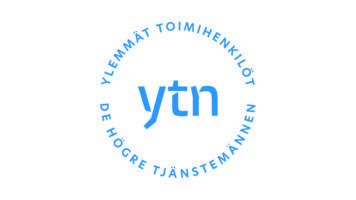
In the long term, the Government Programme will erode the culture based on sectoral agreement between social partners. The immediate effects are less pronounced.
Many senior salaried employees may not perceive the effects of the Government Programme in their daily lives except that, after the income tax relief, their net earnings will increase slightly.
“The Government Programme is written in such a way that if you are working, in a relationship and live an average normal life, it will not hit you badly. And if you work in a branch where a universally applicable collective agreement is in force, that will also provide protection,” says Negotiations Manager Petteri Oksa.
However, for those who drive longer commutes, the Government’s actions have a direct impact.
“They will have to pay more because the liability threshold for the deduction is increased from EUR 750 to EUR 900. In addition, commuting expenses can only be deducted in taxation up to EUR 7,000, whereas the limit has previously been EUR 8,400.”
Those expert groups that are not covered by a universally applicable collective agreement may also be facing an unpleasant surprise.
“The first day of sick leave may become unpaid, unless otherwise agreed in the employment contract.”
INDIRECT IMPACTS MORE SIGNIFICANT
More significant from the point of view of working life and Finnish society are the indirect effects brought about by the Government Programme. They can be expected, for example, from an amendment to the labour legislation planned by the Government, which would significantly increase the freedom of agreement for unorganised companies and make it possible to bypass the parties of the local agreement.
“It will probably result in some pretty interesting working conditions if agreements are going to be made individually. That is, ‘agreements’, in quotation marks,” Oksa says.
Indirect effects, which would only become visible with future collective agreements, would also be caused by the Government’s plans for the so-called general line. The Government wants to ensure, by law, that the salary level agreed by the export industry can no longer be exceeded in negotiations by other branches. This would be poisonous, especially for the lower paid branches.
“Cementing pay relations between the industries would mean that many senior salaried employees would remain permanently underpaid.”
The minimum timescales for change negotiations are to be cut in half, meaning that companies could implement layoffs and terminations more quickly. In other words, affected employees will get less income compared to the old system because their salary payments will end sooner.
“And when the grounds for termination are eased so that a mere ‘proper cause’ is sufficient instead of the old ‘proper and weighty’, the personal risk of having one’s employment terminated increases at the same time as the rights and unemployment security of the dismissed are weakened.”
THE GOVERNMENT PROGRAMME WILL COLOUR FUTURE NEGOTIATIONS
“As long as the current collective agreements are in force, the Government Programme will not revolutionise the world from the point of view of the contracting parties,” says Teemu Hankamäki, President of YTN.
“But it will definitely colour the next round of negotiations, which will begin in just over a year’s time.”
He predicts that negotiating tables will be wrestling over the policies in the Government Programme.
“Many things written in the Government Programme will probably be brought to the negotiations by employers. For example, the first day of sick leave being unpaid. At present, the agreements of senior salaried employees guarantee about three months of pay during illness, without any qualification periods. This is something employers will probably want to change and they will appeal to the new law, whether it’s already in force or not.”
The same may also apply to reducing the notice period for layoffs to one week.
“It is not even allowed to improve upon this by collective agreement.”
In the long term, the position of collective agreements is threatened by the Government Programme’s intention to open up local agreements to unorganised companies in a very broad way.
“After that, why would the companies be interested in belonging to the employer union if you can get the same contract opportunities and local agreements without them? Will there eventually be no more negotiators for the collective agreements?” Hankamäki wonders.
LEGALLY IMPOSED EXPORT MODEL WOULD BIND THE CONCILIATOR’S HANDS
According to Hankamäki, the hottest potato is, however, anchoring all salary increases at the level of the export industry with legislation. The Government’s project would radically change the very foundation of the labour market negotiation system.
“The hands of the National Conciliator would be tied; it would no longer be possible to seek anything but pre-defined solutions from the Bulevardi office. And it would rule out all such means as last year’s arbitration board, which was set up to resolve the stalemate in the municipal sector.”
YTN opposes enshrining the export model in legislation and thus ultimately transferring salary decisions from labour market organisations to politicians. Instead, the current state might be improved by the model proposed by Akava for the development of the conciliation system.
“In Finland, you only go to the conciliator when you have already received a strike warning. Then the conciliator is obligated to convene the parties. But at that stage, the negotiations have already failed. A more proactive system would be better,” says Hankamäki.
Akava’s proposal borrows elements from Sweden. It includes, among other things, the establishment of an office to assist the National Conciliator and produce economic data for the social partners.
“This way, the parties to the dispute would have at least some kind of uniform situational picture of the cost effects of the wage settlement, for example.”
UNIONISATION MEANS BEING PREPARED
Although collective agreements are now in force, there may be calm in the labour market before the storm. YTN strives to prepare for various developments in order to defend the interests of its members. The first step is to put one’s own house in order by taking care of unionisation.
“The more members we have, the greater the weight of YTN. So, it’s good to go talk to a co-worker about why it’s worthwhile belonging to a union and what goals YTN has,” says Negotiations Manager Petteri Oksa.
Text: Mikko Nikula
